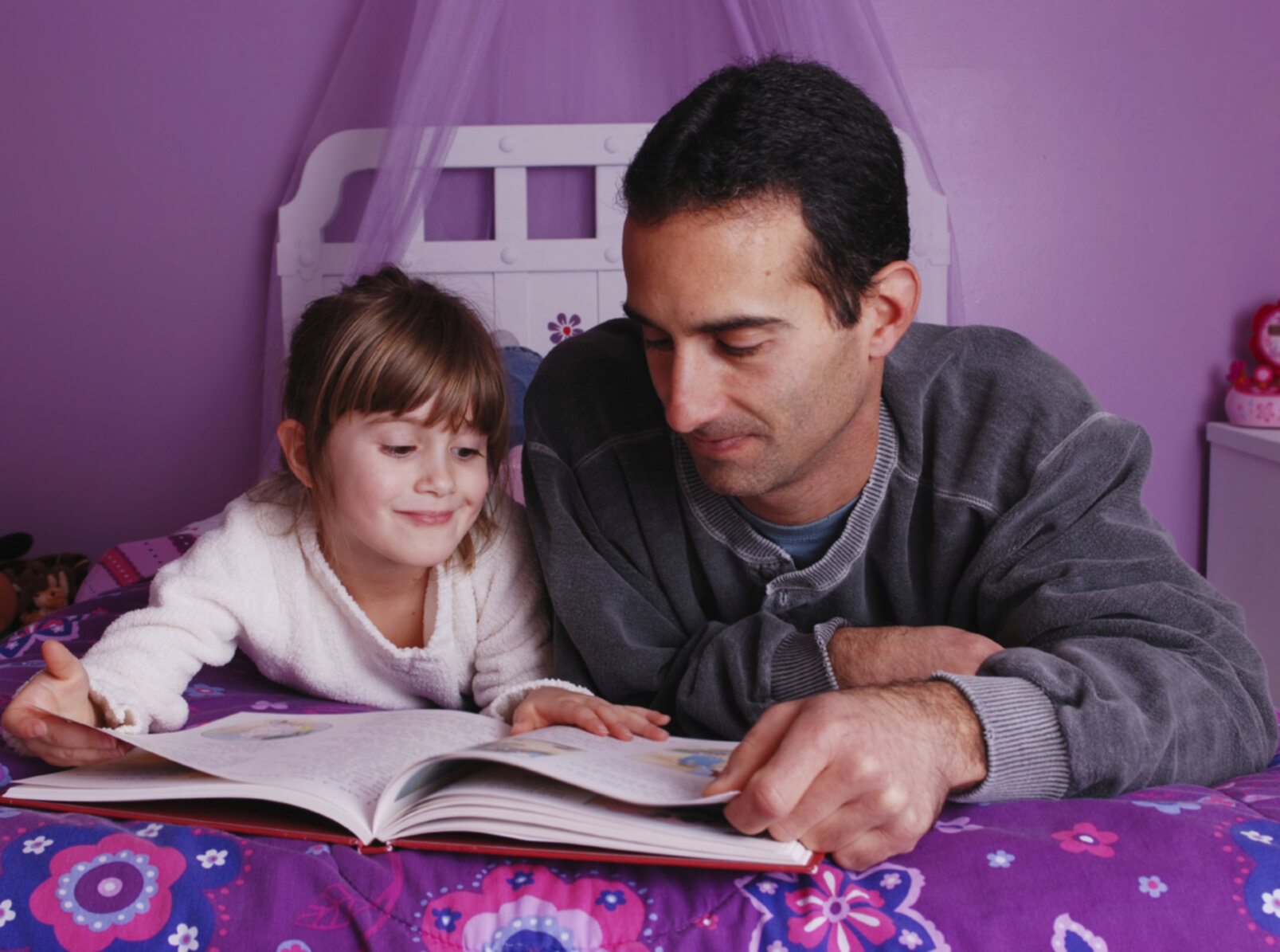Expanding Access & Quality – States are Making Strides in Early Learning
From the White House Initiative on Educational Excellence for Hispanics:
Expanding Access and Quality
The U.S. Departments of Education and Health and Human Services released a national report as well as state reports today that show Early Learning Challenge states are rapidly improving the quality of early learning programs while enrolling more children, especially from low and moderate income families, in the highest quality programs.

A father and daughter spend time together reading a book
What’s more, the report shows that thousands more children are receiving developmental and behavioral health screenings to help detect medical or developmental issues earlier. The report comes from the annual performance reviews for the 20 states who have received Early Learning Challenge grants since 2011. These reports capture the successes achieved and obstacles overcome by states in the last year.
“The 20 Early Learning Challenge states are making important progress in improving early childhood programs for families,” said Mark Greenberg, Acting Assistant Secretary, Administration for Children and Families. “For example, nearly 70,000 early learning and development programs in these states have been evaluated to measure their quality, and this is a key step in raising program quality.”
Highlights from the grant evaluations are as follows:
- Nearly 70,000 early learning and development programs are now evaluated under their state’s Tiered Quality Rating and Improvement Systems (TQRIS), an 85 percent increase since the states applied for their grants.
- The number of programs in the states’ highest quality tiers of the rating systems grew from 9,000 to more than 21,000, a 134 percent increase since the states applied for their grants.
- Significantly more children with high needs are enrolled in programs in the highest quality tiers of their state’s rating system.
- Nearly 267,000 children with high needs are enrolled in the highest quality state preschool programs, a 263 percent increase since the start of the grants.
- Nearly 243,000 children with high needs are enrolled in the highest quality child care programs that receive federal child care subsidy funds, an 86 percent increase since the start of the grants.
- Nearly 211,000 children with high needs are enrolled in the highest quality Early Head Start/Head Start, a 189 percent increase since the start of the grants.
The Early Learning Challenge is a historic federal investment launched in 2011 that supports states in building strong systems of early learning and development to ensure that underserved children, including children from low income and vulnerable families, as well as children with disabilities and English learners, have equitable access to high quality programs. Forty states applied for grants but, because of limited funding, only 20 states received awards: California, Colorado, Delaware, Georgia, Illinois, Kentucky, Maryland, Massachusetts, Michigan, Minnesota, New Mexico, New Jersey, North Carolina, Ohio, Oregon, Pennsylvania, Rhode Island, Vermont, Washington state and Wisconsin. These grantees are working to align, coordinate, and improve the quality of existing early learning programs across multiple funding streams that support children from birth through age 5.
